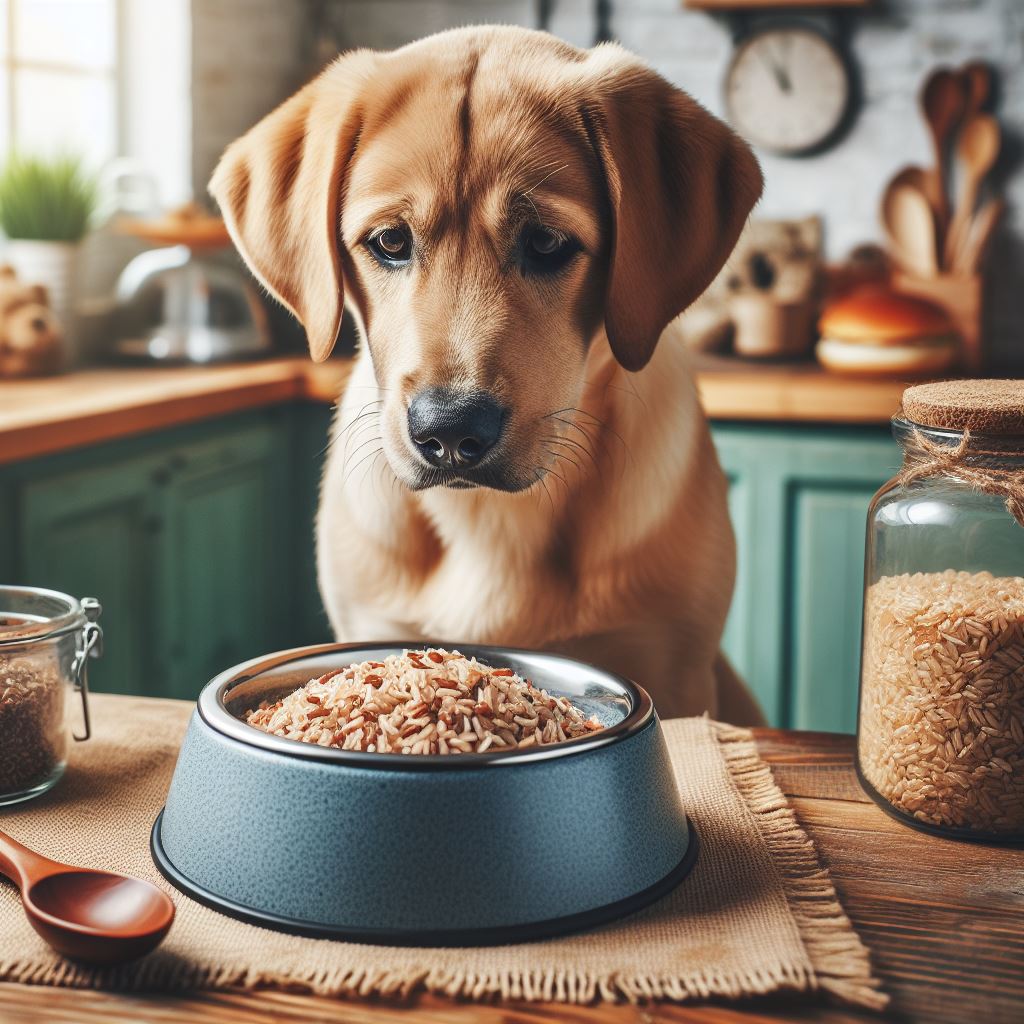Can Dogs Safely Eat Brown Rice
Yes, dogs can safely eat brown rice in moderation. This versatile grain is more than just a staple in human kitchens; it can also be a healthy addition to your dog’s meal plan. Brown rice offers vitamins, minerals, and fiber, which makes it a better choice than white rice for your furry friend.
While brown rice is nutritious, it’s crucial to remember that dogs have different digestive systems than humans. This means that portion control is key.
Brown rice should only make up a small portion of their overall diet, complementing their regular dog food. Strike the right balance to avoid gastrointestinal upset and ensure they’re getting all the nutrients they need.
Unlike white rice, which is more processed, brown rice retains its bran and germ. This means it holds more nutritional value, including essential fatty acids and antioxidants that are absent in white rice.
Such components can support your dog’s health when integrated responsibly into their diet.
Integrating Brown Rice into Your Dog’s Diet
Finding the right way to prepare brown rice for your dog is crucial. Cook the rice thoroughly until it’s soft, as this makes it easier for your dog to digest.
Avoid adding any seasoning or oils that could potentially harm your dog or lead to digestive issues and definitely no onions or garlic which are toxic for dogs.
When you introduce brown rice to your dog’s meal plan, start with small amounts. Mix it with foods they’re already used to, such as their regular dog food or some lean meats like chicken or turkey.
This will help them adjust without any abrupt changes to their diet.
Before you make any dietary changes, I recommend speaking to your veterinarian. They know your dog’s individual health needs and can provide guidance on the right portion sizes and frequency that would be beneficial as part of a balanced diet.
Keep an eye out for signs of allergies or sensitivities, such as itching or gastrointestinal upset. While such reactions are rare when it comes to brown rice, they can occur.
If you notice any adverse effects, discontinue feeding brown rice and consult your vet.
Long-term Effects of Brown Rice on Canine Health
Now, after you’ve considered incorporating brown rice into your dog’s meals, you might wonder about the long-term impact it could have on their health.
It’s crucial to look at both the benefits and potential drawbacks to ensure you’re making the best choice for your furry friend.
Regular inclusion of brown rice in a dog’s diet can serve as a powerhouse of nutrients. It’s rich in fiber, which aids in digestion, and also provides vitamins and minerals essential for overall well-being.
For dogs with certain health conditions, like diabetes, the low glycemic index of brown rice can help manage blood sugar levels.
However, balance is key. Too much of any food, brown rice included, can lead to unanticipated issues such as weight gain if it’s not balanced with physical activity.
Moreover, some dogs may have trouble digesting grains or could develop food allergies or sensitivities with consistent exposure.
Lastly, remember that each dog is an individual. What works for one may not work for another. Always keep an eye on your dog’s response to new foods and consult with your veterinarian regularly to address any health concerns or diet adjustments.
This way, you can ensure that brown rice remains a healthy part of your dog’s diet.







